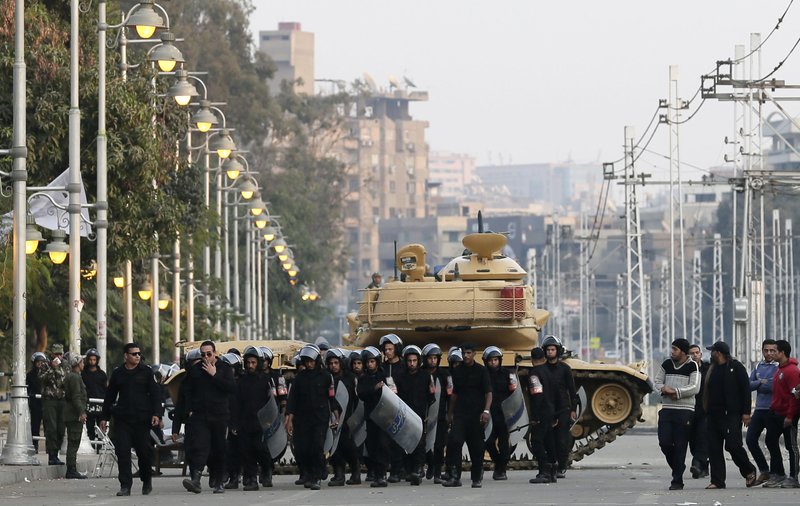CAIRO — Key Egyptian rights groups called Sunday for a repeat of the first round of the constitutional referendum, alleging the vote was marred by widespread violations. Islamists who back the disputed charter claimed they were in the lead with a majority of "yes" votes.
Representatives of the seven groups charged that there was insufficient supervision by judges in Saturday's vote in 10 of Egypt's 27 provinces and independent monitors were prevented from witnessing vote counts.
The representatives told a news conference that they had reports of individuals falsely identifying themselves as judges, of women prevented from voting and that members of Islamist President Mohammed Morsi's Muslim Brotherhood were allowed inside polling stations. They also complained that some polling centers closed earlier than scheduled and that Christians were denied entry to polling stations.
The second and final round of voting on the charter is planned for Saturday Dec. 22.
The vote capped a near two-year struggle over Egypt's identity since the ouster of longtime leader Hosni Mubarak. The latest crisis over the charter evolved into a fight — deadly at times — over whether Egypt should move toward a religious state under Morsi's Brotherhood and their ultraconservative Salafi allies, or one that retains secular traditions and an Islamic character.
Underlining the tension, some 120,000 army troops were deployed to help the police protect polling stations and state institutions after clashes between Morsi's supporters and opponents over the past three weeks left at least 10 people dead and about 1,000 wounded.
Some voters on Saturday said the presumed supervising judge at their polling centers refused to show them official documents to certify that they were indeed a judge. Others said some polling centers closed hours ahead of the 11 p.m. cutoff.
Others complained of suspected members of the Brotherhood whispering to voters inside polling stations to vote "yes." And some voters alleged some of the supervising judges were influencing voters to choose "yes."
A group of women in Alexandria claimed the judge in their polling center was stalling to stop them from voting.
The violations reported by monitors included polling centers collecting votes without judges to oversee the process, civil employees illegally replacing the judges, ballot papers not officially stamped as per regulations, campaigning inside polling stations and Christian voters being turned away.
The allegations of widespread violations came only hours after the Brotherhood claimed a majority of Egyptians who voted on the proposed Islamist-backed constitution have approved the document with a majority of about 57 percent. Turnout was unofficially estimated at around 32 percent — which if confirmed would be far lower than the presidential or parliamentary elections following Mubarak's fall.
Official results are not expected until after the second round.
The Brotherhood, which has in the past accurately predicted election results, relied on vote tallies collected by its activists at the individual polling stations across the country.
